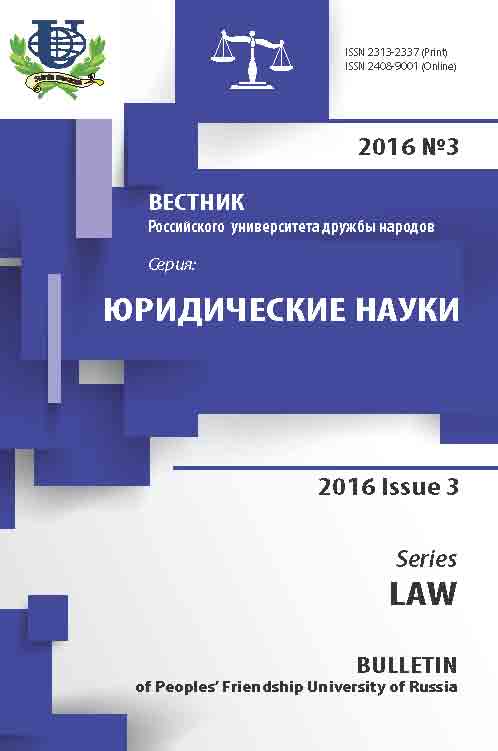The Legal Aspects of the Basic Categories in the Sphere of State Registration of Real Estate
- Authors: Kolomijets D.Y1
-
Affiliations:
- Russian Peoples’ Friendship University
- Issue: No 3 (2016)
- Pages: 119-132
- Section: Articles
- URL: https://journals.rudn.ru/law/article/view/14786
- ID: 14786
Cite item
Full Text
Abstract
The article observes a problem of legal regulation of the state registration and inscription activeness on real estate properties. The author specifies basic categories “registration” and “cadaster”. A “cadaster” is considered to be informational and analytical registry system modifying almost every record process of land property complex into high-integrates territorial cadastre-type system. This enables to make a conclusion concerning formation and development of information space of property sphere in the modern period. The author analyses definitions of subjects of cadastre registration, focuses on definitions of buildings, constructions, locations, constructions in progress and underground structures that show specificity of researched sphere of legal regulation. The article also proves that conceptual framework of the problem includes a term “Uniform state register of real estate properties support system”. It reveals not absolutely reasonable variety of analogues of this term, so the author has to concentrate on analysis of structural components of the basic concept. It is proved that combining of information resources of the aforementioned Uniform state register and State Real Estate cadastre as a structured and logically unified data set necessary for registration and identification will have as one of its results a possibility to analyze a procedure of a posted state cadastre registration when making a decision about state registration of ownership. The author concludes that fulfilling of the task of minimizing the uncertainty and crossover use of definition in the system of legal regulation of registration and inscription activeness will contribute to improving of its conceptual and theoretical basis and practical aspects.
About the authors
Dmitrii Y Kolomijets
Russian Peoples’ Friendship UniversityLaw Institute 6, Miklukho-Maklaya st., Moscow, Russia, 117198
References
Supplementary files















